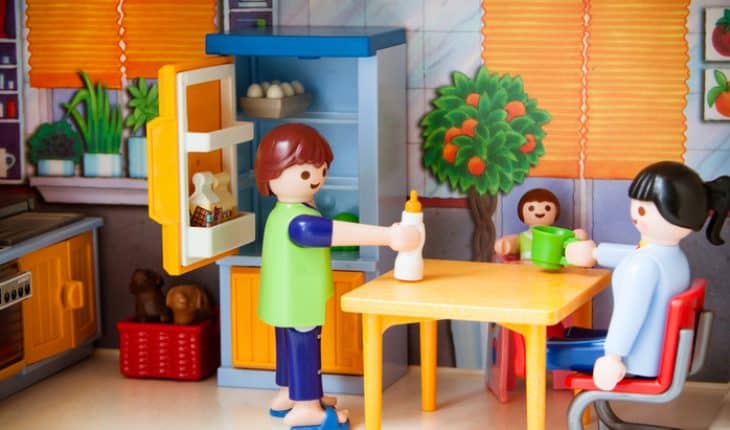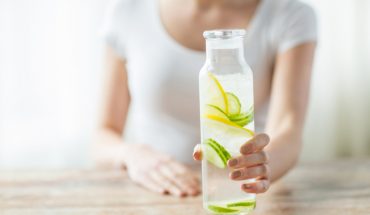Every year, around 2 million children attend A&E due to accidents. Over 76,000 of these require admission to hospital – that is nearly 1500 children a week! This week is Child Safety Week and Emma Hammett from First Aid for Life runs through some top tips to make your home safer.
Accidental injury is one of the biggest single causes of death in the UK for children over the age of one. More children die each year due to accidents than from illnesses such as leukaemia or meningitis.
Accidental injury is one of the biggest single causes of death in the UK for children over the age of one. More children die each year due to accidents than from illnesses such as leukaemia or meningitis.
Children should never be over-protected or wrapped in cotton wool; they do need to take measured risks and the inevitable bumps and bruises are a healthy part of growing up. However, it is vitally important to have the knowledge to anticipate and prevent serious childhood injuries that can cause long-term damage and have life-changing consequences.
Being one step ahead:
Children develop at different rates; they reach milestones at totally different times and some miss out stages altogether. You will know your child well but may not anticipate at what point they will suddenly roll, become mobile or be able to reach new heights.
It is exciting to see how quickly children grow, and to revel in new developments such as grabbing things, rolling over, crawling, standing, climbing, opening bottles and turning handles. However, it’s when these new abilities take us by surprise that serious childhood accidents can result.
When my children were younger, we had regular visits from older cousins and friends’ children. This gave us some insight into the next stages for our little ones. Things of no interest to our children, or things way out of their reach, became a source of fascination for our visitors. Anticipating possible risks was incredibly useful as it meant we were always one step ahead in the battle to stay safe!
The six most common childhood accidents are:
- Falls
- Burns
- Choking
- Suffocation/Strangulation
- Poisoning
- Drowning
There are simple safety precautions that all households can easily adopt to minimise the risk of children having accidents.
Preventing falls:
- Never leave a baby in a bouncy chair or car seat on a raised surface.
- Babies and children should always be strapped into highchairs, buggies and car seats.
- Always hold onto the banister when carrying your baby up and downstairs.
- Fit safety gates to your stairs before your baby starts crawling and ensure you keep stairs clear from clutter.
- Teach your baby to come down the stairs backwards.
- Fit safety locks to windows.
- Never leave chairs, large plant pots or furniture near windows, work surfaces, balconies or anywhere dangerous a baby or child could climb onto.
- Secure furniture – particularly bookcases, chest of drawers and TVs – to the wall to prevent them toppling and crushing a child if they try to climb up them.
- Bunk beds are not recommended for children under 6.
- The safest place to change your baby’s nappy is on the floor – be incredibly vigilant when using changing tables.
Preventing Burns:
- Microwaves cook unevenly. Get rid of hot spots when heating bottles or food by shaking or stirring thoroughly. Test the temperature before giving food to children or feeding a baby.
- Run cold water into the bath first to stop the bottom overheating. Use a bath thermometer as well as checking the temperature yourself before bathing babies. Ideally fit a thermostat or temperature regulator to bath taps.
- Keep hot drinks out of reach, use a kettle with a short flex and keep it at the back of the work surface.
- Don’t drink hot drinks while holding a baby and never pass hot drinks over anyone’s head. A drink that has been sitting for 15 minutes can still be hot enough to burn a baby.
- Use the back rings of the cooker, turn pan handles away from the edge.
- Fit fireguards and radiator guards, turn off heated towel rails.
- Be very careful of irons, hair straighteners and other hot implements and keep them and their flexes well out of reach. Remember how long they take to cool.
Preventing choking:
Babies and young children can choke on anything small enough to fit through a loo roll. To prevent choking:
- Keep small objects and all batteries out of reach.
- Cut food into small pieces.
- Supervise children while they’re eating, especially if they’re under five.
- Discourage older children from sharing their food with babies.
Preventing suffocation:
- Do not use duvets and pillows for babies under 12 months.
- Keep nappy sacks and small objects well away from babies. If they grab them they can easily suffocate as they don’t have the dexterity to remove them from their faces.
- Keep pets away from small babies and never leave a pet unattended with a child.
- Never hang drawstring bags on cots, avoid cot bumpers which tie around the cot and use blind cord clips or alternatively choose a cordless blind.
- Keep plastic bags and packaging out of reach and dispose of them carefully.
- Never put necklaces or dummies round a baby’s neck.
Preventing Poisoning:
Some common household chemicals are incredibly toxic to children and can cause seizures, vomiting, blurred vision, acute anaphylaxis and can be fatal.
- Keep all potentially harmful substances out of reach of small children and ideally in a locked cupboard. This includes dishwasher tablets, medicines, alcohol, cosmetics, DIY supplies, cleaning and gardening products and potentially poisonous plants.
- Never decant medication or any other products into different containers. Always use the original containers, clearly labelled, ideally with childproof lids.
- Keep batteries out of reach of small children and ensure that batteries in toys and gadgets are firmly secured. Batteries can burn a child’s intestine, causing irreparable damage.
- Fit carbon monoxide alarms and have appliances and alarms regularly checked.
- Tidy up straight after a party as little ones are likely to be the first up and could easily finish the dregs of drinks and help themselves to anything else before you’re even awake.
- Be careful of other people’s handbags left accessible to children as they could have numerous potentially lethal hazards inside.
- Choose cleaning products containing Bitrex which is bitter to discourage children from drinking the substances. Children can easily mistake a dishwasher or washing machine capsule/tablet for a sweet – keep them out of site and don’t be tempted to leave them in the door of the machine. Cleaning products are strong alkali and burn.
- Don’t let children eat any plants in the house, garden or countryside.
- Store medication carefully, be particularly careful with birth control pills and analgesics that are commonly kept on the bedside cabinet.
Preventing Drowning:
Children should always be supervised as they can drown in surprisingly small amounts of water, just a couple of centimetres. They should never be left alone in a bath, even for a short time. Be vigilant around pools and ponds which should have safety features, such as fencing and gates. Drowning can happen quickly and quietly (unlike the way it is portrayed in films) and causes a frightening number of fatalities every year.
If you’ve been enjoying water play with your children; always empty bowls and buckets immediately after use.
First Aid for Life provides this information for guidance and it is not in any way a substitute for medical advice. First Aid for Life is not responsible or liable for any diagnosis made, or actions taken based on this information. It is strongly advised that you attend a First Aid course to understand what to do in a medical emergency.
- What is a seizure? - 13th March 2025
- Febrile Convulsions and Seizures in Children - 13th March 2025
- Why women are less likely to receive CPR or survive cardiac arrest - 6th March 2025







